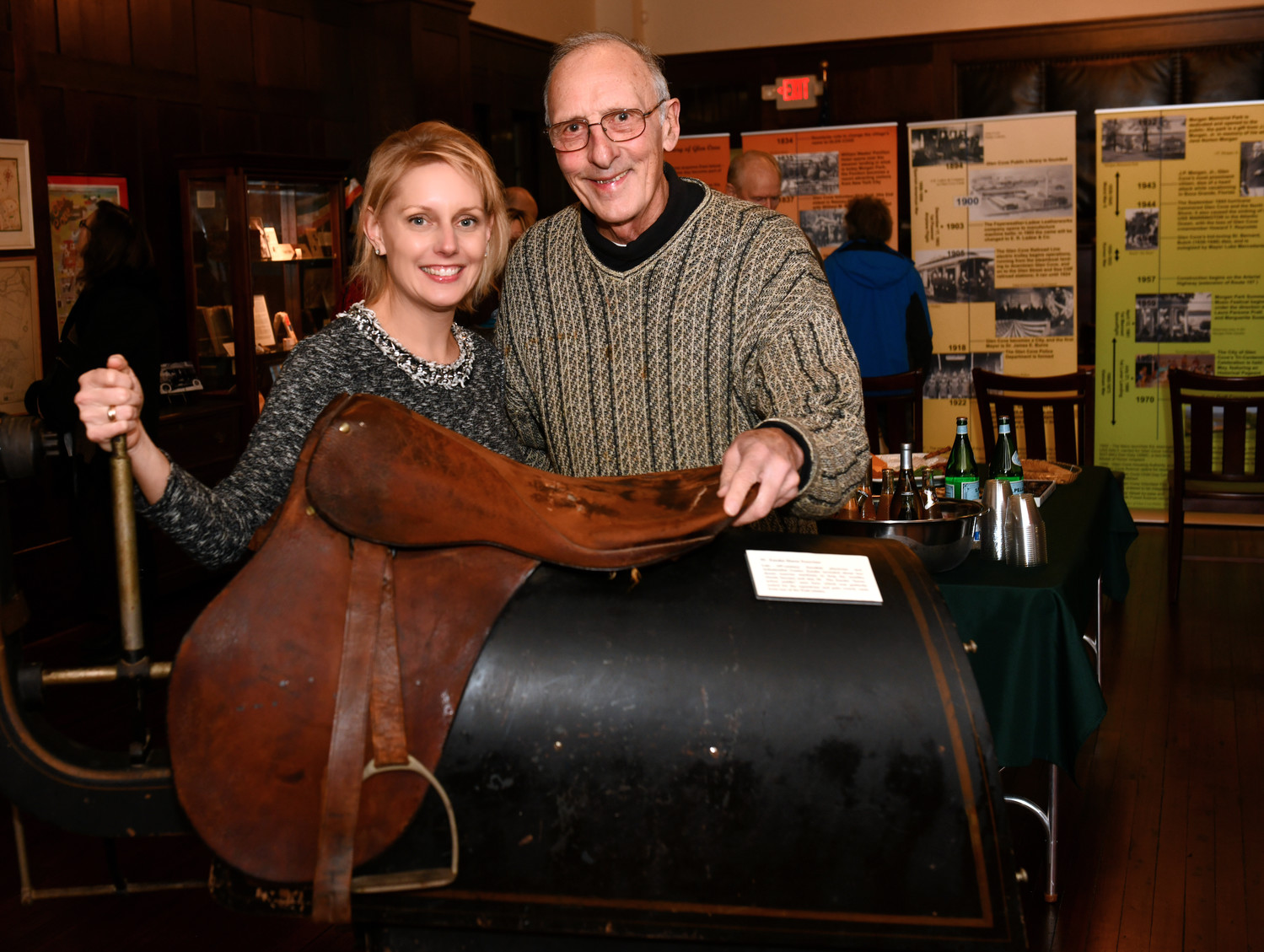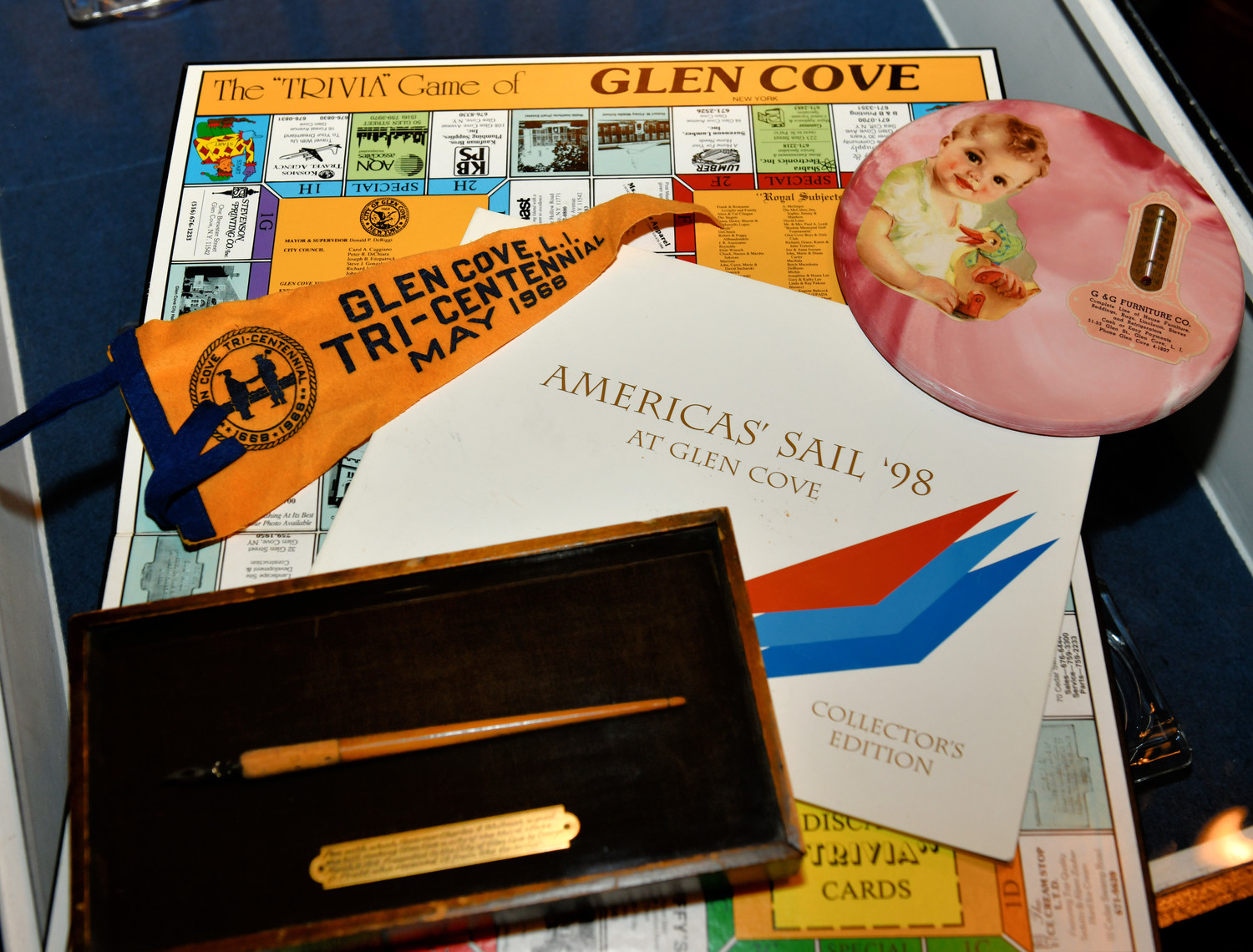Glen Cove opens museum exhibit as part of 100/350
Glen Cove continued celebrating its combined “100/350” anniversary with the opening of an exhibition on Jan. 12, at the North Shore Historical Museum. Entitled “How Glen Cove Became a City,” the event was attended by Nassau County Legislator Delia DeRiggi-Whitton and Glen Cove City Councilman Michael Zangari. The exhibit features artifacts and documents from the 350 years since the city’s settlement by English Quakers and the 100 years since the swearing-in of its first mayor and city council — 100/350.
The artifacts ranged from a copy of the original deed of sale of 2,000 acres of land, which stretched from modern-day Queens to Port Jefferson, to partners Joseph Carpenter, Nathaniel and Robert Coles and Thomas Townshend; to a copy of the original contract between the tract’s four purchasers. Known as the Andros Patent, “The agreement divided the land into four equal shares,” said local history buff David Nieri. “The land was part woodland, part meadows and part farmland,” he said, “and each partner got an equal share of each type of land.” How, or even if the original Matinecock Indian owners were paid is lost to time, he said.
On first entering the exhibition, visitors encountered what appeared to be a mechanical bull. Nieri explained that this was a piece of late 19th-or early 20th-century exercise equipment. “It was so riders could keep in shape through the winter,” he said. “Otherwise, they’d be very sore for the first few weeks of spring,” he added meaningfully.
The original territory of the town was fought over first by the Dutch and English during the two Anglo-Dutch wars of the 1660s; then by the towns of Oyster Bay and Hempstead. Eventually, Oyster Bay won out, and Glen Cove, then known as the Hamlet of Mosquito Cove, remained a part of that town until 1915, when local businessmen and newspapers began agitating to form a new municipality. They did not agree on the form, however. Eventually, a referendum was held “in which the proponents of the city prevailed by just seven votes,” according to the pamphlet guide in the exhibition. Thirteen votes were declared invalid, which provided opponents with grounds for an unsuccessful appeal. The first city council was elected in November of that year and duly sworn in at the old court house — now the museum — on Jan. 8, 1918. The event was re-enacted two weeks ago by the latest mayor and city council after an election that, ironically, was decided by an even slimmer margin.
For more information on preparations leading up to the Memorial Day weekend finale, contact Glen Cove 100/350 at glencove350.com.

 48.0°,
Overcast
48.0°,
Overcast 







